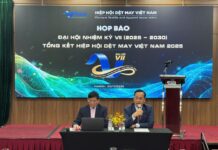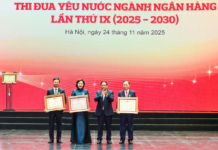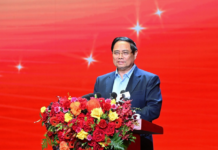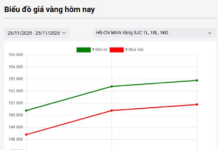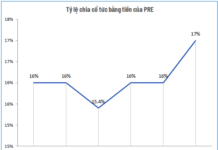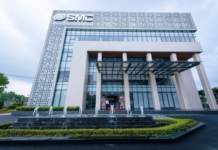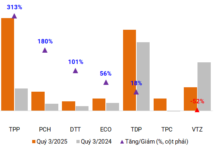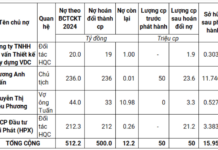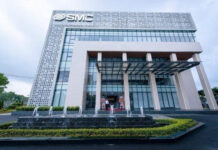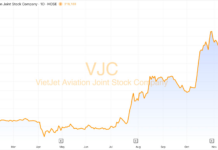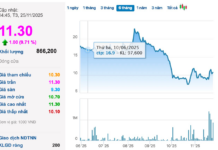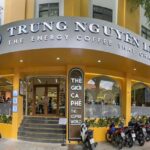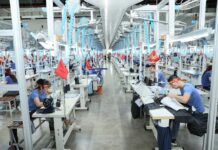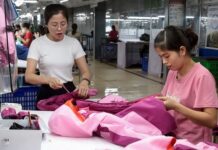On the morning of September 12, 2024, Ho Chi Minh City’s leaders organized a press conference for the “2nd Ho Chi Minh City Friendship Dialogue 2024” and the “5th Ho Chi Minh City Economic Forum 2024” (HEF 2024).
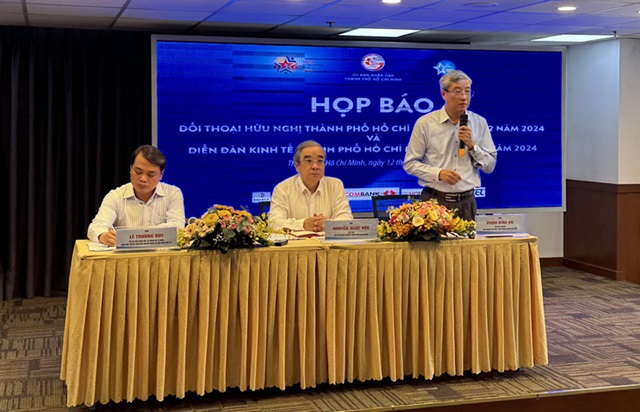
Mr. Pham Binh An, Vice President of the Ho Chi Minh City Institute of Development Studies, shared the importance of industrial transformation in the city.
Industrial Transformation is a fundamental change in industries, driven by technological advancements and business model innovations, aiming for sustainable development and enhanced competitiveness. At the city level, it involves a structural shift in industries, either by upgrading or abandoning traditional sectors and/or developing new, high-value, and sustainable ones. For businesses, it entails innovation and the application of Industry 4.0 achievements to enhance competitiveness and adapt to the market’s stringent requirements.
Ho Chi Minh City’s industrial transformation focuses on the following key aspects:
– Dual Transformation: This involves the parallel and integrated shift towards Green Transformation and Digital Transformation to exploit the benefits of symbiosis. Many countries have focused on dual transformation, making it an inevitable trend for the future.
– Transformation into high-tech industries and/or the application of high technology to upgrade value chains: (1) The city aims to develop high-tech, technology-applied industries with automated production, reduced labor, smart factories, and smart products; (2) For traditional sectors like food processing, textiles, and rubber, the city aims to upgrade the value chain by applying technical advancements in production, focusing on refined and deep-processed products with high added value; (3) Additionally, the city intends to further develop strong industrial support services.
The Necessity of Industrial Transformation for Ho Chi Minh City
Ho Chi Minh City is Vietnam’s economic, cultural, education and training, and science and technology center, with far-reaching connections to the Southeast and Mekong Delta regions. The city has a strategic location within the dynamic Southern region, including Binh Duong, Dong Nai, and Ba Ria-Vung Tau provinces. It is also part of the Moc Bai-Ho Chi Minh City-Vung Tau economic corridor, linked to the Trans-Asian economic corridor. In comparison to the whole country, Ho Chi Minh City accounts for only 0.63% of the area, 9.4% of the population, but contributes 15.9% of GDP, 26.4% of total state budget revenue, attracts 39.9% of international tourists, and houses 18.6% of universities with 31.5% of university students.
However, Ho Chi Minh City’s central position and role have not been commensurate with its potential and have shown a declining trend: The city’s economic proportion has decreased; while there are many businesses (nearly 300,000), most are small and medium-sized (97%) with weak competitiveness; export proportion has dropped significantly, accounting for only 12% of the country (in 2023); the contribution of the industrial sector to the economy has also decreased (in 2022, it accounted for only 19% of GRDP, compared to the national average of 32%). More worryingly, the city’s economy has mainly expanded in breadth, leading to a depletion of growth drivers. Industrial infrastructure is limited and cannot accommodate extensive development; the area of industrial parks in Ho Chi Minh City is 5,921 hectares, accounting for only 2.81% of the country, and land prices are increasingly high. Therefore, Ho Chi Minh City needs to restructure its economy, or industrial transformation, with a dual transformation approach, value chain upgrading, and the development of core industries to seek new growth drivers.
In the international context, the trend towards sustainable development is becoming prevalent, with a focus on emission reduction to address climate change. Export markets are imposing stringent environmental standards on goods. New-generation FTAs link trade with sustainable development and corporate responsibility. Common standards for sustainable development, such as ESG, IFRS, GRI, and CSR, are gaining popularity and shifting from voluntary to mandatory. If businesses do not transform and comply, they risk losing their market share, whether they are exporters or not.
The Party’s Resolution No. 29-NQ/TW dated November 17, 2022, on continuing to promote industrialization and modernization of the country until 2030, with a vision towards 2045, clearly states the requirement to transform industries towards foundational, prioritized, and spearhead sectors with high technology and added value; from resource and energy-intensive industries to green and low-carbon emission industries, while promoting the servitization of processing and manufacturing industries; and continuing to restructure service industries based on modern technology, digital technology, and developing new types of digital economy services. Policies and orientations on green growth, circular economy, digital economy, and Industry 4.0 applications are being gradually improved and implemented in reality.
Industrial transformation is imperative for Ho Chi Minh City to:
– Enhance the competitiveness of products, industries, and businesses: Prioritize the development of key industries, potential sectors, and upgrade the value chain of traditional industries; develop new industries through innovation and Industry 4.0 applications.
– Achieve sustainable development with a focus on emission reduction and environmental friendliness (green growth), aiming for an early Net Zero target for the city. Four pillars are expected: (i) Non-carbon investment; (ii) carbon credit trading and related services; (iii) enhancing resilience and adaptability to climate change; (iv) building a circular economic model.
– Increase connectivity: Meet new integration requirements and international market standards for both goods and services, thereby deeply integrating into the global value chain.
– Elevate Ho Chi Minh City’s position: Industrial restructuring involves reallocating production and business activities based on unique advantages to meet the needs for upgrading and redefining the city’s role in its economic relationship with the Southeast region and the country.
Mr. Nguyen Ngoc Hoa, Chairman of the Ho Chi Minh City Business Association, shared that as the locality with the largest economic scale in the country and the focus of key economic activities, Ho Chi Minh City understands the difficulties faced by businesses in the transformation process and aims to provide timely support solutions. Therefore, HEF 2024 hopes to offer diverse lessons and experiences from seasoned experts in this field, facilitating the development and supporting businesses in their transformation journey.
After a thorough preparation and connection process, HEF 2024 will officially welcome the participation of over 40 domestic and international provinces and ministries from countries, including China, Russia, the United States, Japan, South Korea, Germany, Italy, Australia, and India. Among the attendees are 16 governors, provincial governors, deputy provincial governors, and deputy ministers. The event also welcomes the presence of more than 27 domestic and international experts who have succeeded in the fields of industrial transformation, innovation, and sustainable development, along with international organizations such as the World Economic Forum (WEF), World Bank, FAO, UNDP, UNIDO, IFC, and C4IR in Malaysia.
The 2nd Ho Chi Minh City Friendship Dialogue (Ho Chi Minh City Friendship Dialogue – FD) in 2024, with the theme “Industrial Transformation: Experiences and Priorities in Development Cooperation,” will take place from September 23-24, 2024.
HEF 2024, with the theme “Industrial Transformation, New Momentum for Sustainable Development of Ho Chi Minh City,” will take place from September 24-27, 2024.
Cat Lam
The World of Trung Nguyen Legend Coffee at the Most Beautiful Post Office in the World
In an impressive continuation of its expansion, Trung Nguyen Legend unveiled its 10th coffee world space in the iconic Central Post Office building in Ho Chi Minh City on September 9, 2024. This new addition to the city’s cultural landscape follows the highly successful launches in China and the US in August 2024, further solidifying Trung Nguyen Legend’s presence in the global coffee scene.
The Power of Words: Unlocking the Art of Persuasion
“PNJ Unveils its Premier Status in Retail’s Contribution to the National Coffers”
PNJ has solidified its leadership in the retail industry, not only through impressive business figures but also by spearheading the journey towards sustainable development. The company has made a significant impact, contributing 4,500 billion VND to the state budget in the last three years, clearly demonstrating its commitment to the nation’s progress and solidifying its position as a powerhouse in the jewelry industry.
“A City’s Generous Support: Ho Chi Minh City Donates 120 Billion VND to Aid Fellow Citizens Affected by Storm No. 3”
On September 10, the Vietnam Fatherland Front Central Committee launched a donation drive to support communities affected by the devastating Storm No. 3.
A Heartfelt Farewell Letter from the Daughter of the Owner of the Transport Company, Thanh Buoi: ‘As I grew older, I understood that I am your child, but your customers, cargo, and buses were your life.’
“Then dad told his daughter that her parents would be starting a company in Saigon. They would revolutionize the intercity coach industry, pioneering a new approach in the South: a direct, punctual service with no pick-ups along the way and no overcrowding. ‘Easy tasks are done quickly, difficult tasks take longer; you must be patient,’ her father said. ‘If everything is easy, then others would have done it already.’ These were the words of encouragement from Lê Đức Thành, the founder of the renowned Thành Bưởi coach company, in a farewell letter to his daughter.”





